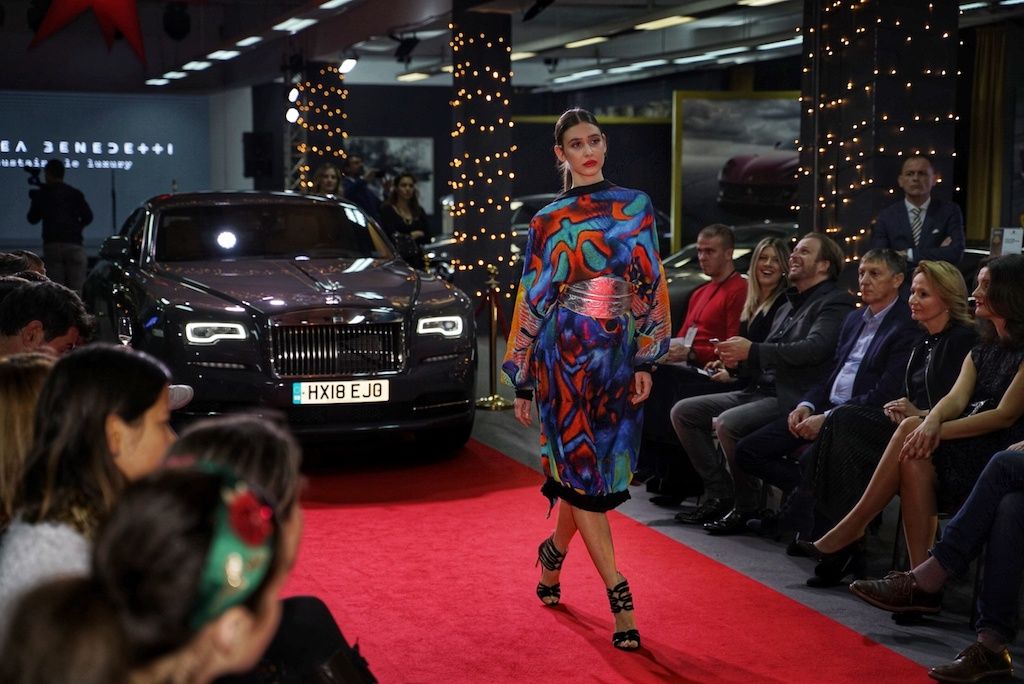Zagreb City Budget Passed with Support of Three "Opposition" Assemblymen
ZAGREB, December 13, 2018 - The Zagreb City Assembly on Thursday adopted next year's Zagreb city budget of 8.19 billion kuna, up 185 million kuna from this year, with 26 votes in favour, 24 against and no abstentions.
Mayor Milan Bandić accepted all amendments proposed by the Croatian Democratic Union (HDZ). The opposition did not put forward any amendments, describing the budget as "megalomanic" and not benefiting the citizens.
Speaking on behalf of the SDP, HSS and Advance Croatia group in the Assembly, Rajko Ostojić said that the Zagreb city budget was social but not developmental and that it was just the continuation of things that have already been seen and would not improve the quality of life for citizens. He noted that for 18 years there had not been any developmental projects in the city.
The Independents for Croatia, who until now were the junior coalition partner with Bandić's party, would not support the budget because Bandić had received the Chairman of the Assembly of the Serbian town of Jagodina, Dragan Markovic Palma, who has been described as a self-confessed Chetnik.
Tomislav Tomašević spoke on behalf of the Left Bloc also criticised the budget. "21 million kuna is being allocated to monuments, yet only 12 million kuna for the reconstruction or construction of new kindergartens. And that is demographic policy," he quipped ironically.
Daniela Juroš Pečnik, head of the City Office for Finance, said that the budget was 185 million kuna higher than last year, adding that four times more money had been absorbed from EU funds and somewhat higher loans were expected for capital investment.
She added that if the budget was not adopted, that could threaten further absorption of 500 million kuna in EU funds.
After losing the support of the Independents for Croatia, Bandić's party lacked the support of three councillors for the budget to be passed. The three votes were secured from Ilija Ćorić (HSS), Miroslav Polovanec (HSLS) and Jozo Miličević (independent).
More news about Zagreb can be found in our special section.
New Dinamo Stadium Would Be "Capital Infrastructure Project of Zagreb"
Dinamo is making headlines again with the always hot topic - a new stadium. The timing is ideal, however, as it’s Christmas time and just hours before the Europa League match against Anderlecht. Better yet, the source is more than credible this time around - the longest president of Dinamo, Mirko Barišić.
The number one man in the Maksimir club, at the end of a brilliant year for Dinamo, dared to announce that they would build a new stadium in the near future, a project the city is already very familiar with. Mirko Barišić, who has successfully run Dinamo since 2000, revealed details of the future Dinamo stadium to Vecernji List on December 12, 2018.
“According to our plans, we would collapse all the stands of the existing stadium, except the North, and build a new facility with a capacity of 25,000 viewers. The project leader would be Dinamo, while the City should approve location permits and infrastructure. But it's too early to talk about the details, in a month to a month and a half we should know more,” Barišić said.
Recall, the ‘dinosaur’ of a stadium, has had several reconstructions, though the last was in 1999.
The construction of the Maksimir stands, according to the projects of Vladimir Turin, Eugen Ehrlich and Franjo Neidhardt began in 1952. Nine years later, lighting was implemented, and the East stands were built on the western part of the Hitrec-Kacian playground. The South stands were built in 1969.
Twenty years ago, according to the idea of Franjo Tudjman, the megalomaniacal reconstruction of Dinamo stadium began, which was completed by the construction of the new North and the addition of the West stands. Unfortunately, this overwhelming appearance of the stadium has remained to this day, with a capacity of 35,000 seats. In 2013, Dinamo arranged a dressing room under the South stands and built a hotel for players and a professional staff.
If Dinamo and the City really found a common language about the new stadium, it would be the capital infrastructure project of the capital city. At the moment, Zagreb is the worst football stadium in all of the major cities of our region.
The price and the look of the new project can now only be guessed and drawn parallel with similar projects in the region. Thus in Vienna, after the demolition of the Hanappi stadium, the new home of Rapid Wein, boasting 28,000 seats, was built. The price of this project was around 53 million euro. Dinamo’s new stadium, hopefully, should carry a much smaller price tag.
The new football facility in Trnava, Slovakia, the Antona Malatinského stadium of 19,200 seats, where Dinamo recently played in the Europa League, cost 28 million euro, and the Nagyerdei stadium in Debrecen, Hungary, was 40 million euro.
Since Croatia’s independence, no new stadium has been built with more than 10,000 seats. A new facility was built in Velika, where Kamen Ingrad once played, though the stadium was bought by the municipality of Velika on an auction of 2,140,000 kuna last year. A new stadium was also built in Dugopolje, as well in Rijeka (Rujevica) after the construction of the new stadium in Kantrida fell apart.
The most critical football complex in Croatia should be launched in Osijek by mid-2020. There, the owner of NK Osijek, Meszaros, with the support of the Hungarian government, is building a football camp and a new stadium with a capacity of 12,500 thousand seats in the western part of the city, at Pampas. It is speculated that the whole project will cost 35 million euro.
Otherwise, the story of building a new home for Dinamo is an old tale. In August 2016, the club released an information bomb so that Dinamo’s Executive Board would decide on launching the largest project - constructing a new stadium - at its next session.
“Dinamo would build a smaller, more functional stadium of about 20,000 seats, which would cost around 40 million euro," it was announced then, though things got quiet once again.
So the question still remains… will Dinamo ever get a new stadium?
To read more about Dinamo, follow TCN's dedicated page.
Advent in Zagreb, or Madvent? Scratching Below the Surface
December 11, 2018 - Advent in Zagreb, voted the best Christmas market three years in a row. But what is behind the scenes?
While most were full of euphoria at the sudden ascent of Croatia's capital city conquering Christkindlmarkt in Germany and other established Advent destinations in Europe, only one news portal went a little deeper and looked at the story 'behind the story'.
That was back in 2016, and while the story behind the story has not gone away, media coverage of it has. As is so often the case in Croatia.
Until now, perhaps.
An intriguing YouTube video on the official Gong.hr channel on Sunday brought Advent in Zagreb - the non-tourist version - back into focus.
Legendary Croatian political satirists Borna Sor and Domagoj Zovak, best known for their work at Newsbar, have teamed up with Gong.hr to bring an advent in Zagreb with a twist - a video every Sunday over four weeks to take a closer look at aspects of Advent in Zagreb which do not make it into the glossy tourist brochures.
In their own words:
"Merry International Anti-Corruption Day to all from GONG, Domagoj and Borna.
"When it comes to Christmas markets, they say the best European one is in Zagreb. During December thousands of people are flocking to the Croatian Capital. But is everything really so nice, pleasant and honest as one would expect from the holiday season? In this short four-part series satirist Borna and Domagoj, are trying to explain the secret formula behind Zagreb advent."
I am learning not to comment on such things, as these lawsuits in Croatia can get pretty tiresome, but I think I am safe in commenting on the video that this is not the first time I have come across this. I look forward to the next installment.
Borna, of course, is running the TCN podcast - you can catch up with his writing on TCN here.
For more on Advent in Zagreb, follow the dedicated TCN page.
Zagreb Company Obtains Handsome Contract from Brussels
As Darko Bicak/Poslovni Dnevnik writes on the 10th of December, 2018, Eccos, a Zagreb company, has recently received a very valuable contract in Brussels worth about four million euros with the European Commission.
More specifically, according to Krešimir Paić and Silvio Pregelj, the directors and co-owners of Eccos, what we're talking about here is a four-year agreement on the improvement and maintenance of electronic and electromechanical control systems for both human and vehicle access to all eighty of the European Commission's facilities in Brussels. This includes the headquarters of the European Union where all major events take place and the key decisions that decide ''our destiny" regularly occur.
"We're proud of the fact that we recently managed to win in the strongest European tender and that we managed to conclude a four-year contract with the European Commission.
This job is the crown of our efforts to bring Croatian savvy, knowledge and experience to the European Union, under the Croatian name and the Croatian flag, and not just as cooperators of large foreign companies. When it comes to foreign markets, we intend to do more work on integrated value-added electrical engineering in the form of our software and project solutions, since we have enough knowledge, quality, experience and will,'' Paić said.
From the Zagreb company itself, they acknowledge that their decision to bid to the EU tender happened quite randomly, as their business activities are mostly related to Croatia and the wider region. Namely, this job is indirectly being credited to the negative trend of Croatian labour force departure to Western Europe. Recently, they admitted, a colleague who sought a future in a similar company in Belgium recently left the company.
As we remained in a good relationship, we continued to socialise occasionally and in those gatherings we realised that they didn't really do anything better than us and that we ourselves could actually come out with their strength and knowledge in any tender in Europe.
Since Croatia is member of the EU, we decided to take advantage of this and we started to follow the tenders in the EU and one came up which was interesting to us, and in which we ultimately won,'' Krešimir Paić recalls.
He added that this is a project where all their knowledge and creativity will come to fruition, because ultimately, the exact value of the contract will depend on what the contracting authority can offer and actually go ahead and implement. Although it's a multi-million euro job, the Zagreb company says it's more valuable to them because of the references they will acquire through it, rather than simply because of the high value of the actual contract.
Eccos is engaged in the development and the implementation of sophisticated solutions in the field of electrical engineering, information technology and security.
This year, they celebrated their 20th anniversary, and currently have 115 employees, half of whom are graduate engineers, and their annual revenue is at the level of one hundred million kuna. Paić and Pregelj recall that their first jobs were installing alarms in family houses, and their first major job was at the Rijeka Oil Refinery, in which they were engaged in designing complex systems in the field of electrical engineering and technical protection.
Energy is still a significant sector for them and they have, along with an American partner, just developed a project for monitoring various pipelines (gas pipelines, etc) through which they're hoping to boost global interest.
Today, as they explain, there is hardly any company in Croatia with which this Zagreb company hasn't cooperated to some extent or another. Silvio Pregelj points out that they are particularly sought-after when a company wants to integrate more than one system into a complete solution.
"In the development of this system, we're striving to unify information from all peripheral devices and sensors, which are all the more smart. This information is collected through various algorithms and by using artificial intelligence, and in this way the behaviour of the system is adapted to the specific needs of its users. We're developing our own software and hardware solutions that are part of our projects (Epsimax, Orgman and ICMS). Today, our development team has about twenty engineers,'' says Preglej.
They have worked on such solutions in both IKEA department stores in the region, in Zagreb and in Belgrade, and there are almost no airports in this area in which they aren't present. They provide a range of electrical and information services, and they are probably the most recognisable publicly for their smart parking systems.
The product of this Zagreb company is also the systems that are being built in the capital and in a number of other cities across both Croatia and the region, and the latest product is the so called smart kiosk, which can already be seen in the centre of Zagreb.
"The new car parking metres in Zagreb are smart kiosks that, besides dealing with parking charges, also provide information to tourists on the sales of other city services, items etc. We have the strongest partners in the world, and we're complementing our solutions with the Eccos Smart City Entablation Platform, which brings together all the participants involved in the process and offers full and complete reporting,'' says Preglej.
Like most other companies, Eccos say they have noticed a lack of workforce, with particular issues regarding successfully attracting young engineers, but for now at least, the situation for this Zagreb company is not alarming.
"We retain people in the team by fostering quality and open relationships, investing in education, the ability to progress in line with the results achieved and by stimulating quality work and effort.
We offer our people the opportunity to participate in sophisticated projects in Croatia, in the countries of the region, and in the European Union, and to expand their knowledge in software development, the hardware, implementation of complex engineering solutions, project management, and all other aspects of our activities,'' says Krešimir Paić.
For now, the company has a head office in Zagreb and Sarajevo, with offices in Split and Dubrovnik, and the opening of an office in Brussels is underway. Their intent is to become more and more present in western Europe and that the existing ratio of domestic market revenues and exports of 80 to 20 will change in the coming period. In that light, there is no exclusion of the opening of new offices in Europe for this successful Zagreb company.
Make sure to follow our dedicated Made in Croatia and business pages for more information on Croatian companies, products and services, as well as on the investment and business climate in Croatia.
If it's just Zagreb you're interested in, stay up to date with Total Zagreb.
Click here for the original article by Darko Bicak for Poslovni Dnevnik
From Korea to Zagreb: Soyeon Won Reflects on Decade in Croatia
While the headlines continue to be dominated by the depressing tales of the mass exodus of Croatia's inhabitants to other countries, there is a much quieter, but still very much present, trickle of foreigners making Croatia their permanent home. One of these people made the journey from Asia, and relocated from Korea to Zagreb in search of happiness, which she well and truly found.
''If someone is looking for a nice place to live, I'd certainly recommend Croatia, but if they're coming to develop their career and earn money, I'd definitely offer them some friendly advise to go somewhere else,'' says 35-year-old Soyeon Won, who relocated from Korea to Zagreb almost a decade ago,.
As Novac.hr/Jutarnji/Boris Oresic writes on the 8th of December, 2018, back in 2015, she opened the Korean restaurant Cro K on Ulica pod Zidom (Street under the Wall) near Dolac in central Zagreb. Cro stands for Croatia, and K for Korea. Soyeon states that she's so fond of the name Cro, that she named her eldest son, who is now eight, Cro, because he was born in Croatia. In Korea, as she says, there is no such male name, but regardless, it sounds good to her.
It's no secret that South Korean people love Croatia, which is best evidenced by the data proving that a growing number of tourists are visiting Croatia from this distant country in which the Croatian tourist offer has been being very well advertised over recent years. There have also been some very popular TV shows which were shot in Croatia, after which the curious Koreans, fascinated by the beauty of the cities and nature that they saw on their screens, began visiting in larger numbers.
Some, like Yo Han Kima, a Korean shop owner, came to Croatia on holiday, and they ended up liking it so much that they decided to stay, live here permanently, and even start their own business. Gye Yoen Cho from the Korean Embassy in Zagreb revealed that according to her knowledge, around 180 South Korean citizens have made the move from Korea to live in Croatia, but as they're not required to report to the embassy, the actual number is certainly somewhat higher than we'd expect. A good deal of them came to Croatia to study initially and ended up staying, while some work in Korean company offices, particularly Samsung.
The amount of people who have either tried, or have successfully made the move from Korea to Zagreb and beyond remains unknown by the embassy, but their numbers are likely higher than we might imagine.
"There are more and more Korean tourists in Croatia and I hope there will also be more investors. For the time being, there aren't many examples of that, but there is a lot of research on the market and they're exploring opportunities to launch jobs mainly related to tourism, as well as more significant investments,'' says Gye Yoen Cho.
According to the latest data from the Central Bureau of Statistics, during the first eight months of this year, Croatia increased its exports to South Korea by 117.5 percent compared to the same period last year, to 509.33 million kuna. At the same time, imports increased by 51 percent to approximately 917 million kuna. Economic co-operation between Korea and Croatia continues to grow, but not as fast as it could, and Croatia hasn't particularly emphasised its desire to attract direct investments from that Asian country, as was highlighted last week and at the Korean-Croatian Economic Forum which was held in Zagreb.
Last year, Croatia was visited by a massive 444,000 Korean tourists, and it is expected that this year, those numbers will be even higher. In the first seven months of 2018, there were 180,000 Korean tourists, or 29 percent more than in the same period of 2017.
In Zagreb, Koreans have been by far the most numerous guests for a number of years now, and in the first half of this year, the Croatian capital was visited 55,600 Koreans, which is 43 percent more than last year.
Everyone expects that these positive trends will continue in the coming years, especially as two Korean reality shows have been recorded in Croatia this year, and Korean Air also introduced a direct connection between Zagreb and Seoul which runs twice a week, which made the Croatian capital and the rest of the country as a whole much more accessible to Koreans than ever before.
Korean Air's sales representative for Central and Eastern Europe, Michal Ohnesorg, told Globus that this welcome direct line was introduced primarily owing to a large number of Korean tourists travelling to Croatia. Additionally, the number of travellers from Croatia and neighbouring countries who are heading to Korea or specifically Seoul as their final destination has also increased.
"We believe that the introduction of Seoul - Zagreb connection was a good business decision and we're confident that this line will be successful in the future," concluded Ohnesorg.
Research has shown that Korean tourists typically look to travel to destinations which inspire them, where they will learn something about history and the local lifestyle, expand their knowledge and their perspectives, and they travel with the same intensity for twelve months of the year. When at home Koreans, regularly visit Korean restaurants, and in the Croatian capital, thanks to those making the move from Korea to Zagreb, there are two already, Cro K in the very centre of Zagreb, and Omma on Unska street in Trnje.
Cro K's owner Soyeon Won studied Italian language and literature at home in Korea, and she worked as a translator and dreamed of completing her studies in Italy. Then she got married and her husband got a job at the Korean Embassy in Zagreb, which she liked very much because Croatia is so close to Italy. She then relocated from Korea to Zagreb.
By then, her husband had three years of cooking experience behind him from working in restaurants in America. She admited to Novac.hr/Jutarnji, that she herself had nothing to do with gastronomy. When their sons, born in Croatia, grew up a little, Soyeon Won began thinking about starting her own business, and so in June 2015, she cemented her move from Korea to Zagreb by opening the city's central Korean restaurant after finding a suitable space, right in the heart of Zagreb, where there used to be a cafe. They had to invest heavily in decorating. On the ground floor there is a 33-seat dining room and another 40-seat room in the basement, as well as the obvious - a kitchen.
"My friend has restaurants in Vienna and he was astonished when I told him what the price of renting space in the centre of Zagreb is, it's almost like it is in Vienna.
Zagreb is comparatively quiet and comfortable when compared to Seoul. In Korea, they all compete and compare with each other. Here, we're happy, the kids go to the British school, and my husband recently opened a company that deals with the sale of metal products from Korea. When I started this job, my acquaintance with people from Croatia helped me greatly with the administration, which is far more complicated than it is in Korea, was very important to me. My husband says that it isn't as demanding even in America as it is in Croatia,'' says the young Korean, satisfied with the fact that she has more and more guests every year, especially in the tourist season, which runs from March until November.
Therefore, she adds, she's happy with not only her move from Korea to Zagreb, but with her business, and she hopes that next year will be even better than this one.
The restaurant's guests are mostly tourists, not just Koreans, but, as she reveals, there are plenty of Germans, French, Americans, Chinese, Malaysians, and others who like Korean food. But it's no surprise that Croats also often come to try something new and exotic, and some have already become very regular guests.
In the beginning, Soyeon Won was mostly cooking everything herself, but one year later, there were some Korean chefs, two young men who moved from Seoul to work with her in Zagreb. She employs four chefs and three waiters. Soyeon added that it isn't easy to keep hold of Croatian workers during the summer because everyone prefers to go to work on the coast where they typically earn more money.
"The laws in Croatia are much more inclined towards workers than they are in Korea. It's happened to me that a waiter or chef has told me that he can't work, and I can't do anything about it. There are many reasons it is not really easy to do business in Croatia, I know some Koreans who came here to try something, but quickly gave up. I don't intend to go anywhere.
Every summer we go to the coast and have never seen such a beautiful coast as Dalmatia, and I have more and more friends who are Croats. I don't include myself among those Koreans who just can't live without kimchi, Korean fermented spicy cabbage, so at home, I often prepare European dishes, and I love Croatian food, particularly sarma and kulen,'' says Soyeon Won.
Make sure to follow our dedicated lifestyle page for more stories from not only those who have made the move from Korea to Zagreb, but of many of Croatia's foreign residents from close to home in Europe, and from much further afield.
Click here for the original article by Boris Oresic for Novac.hr/Jutarnji
Zagreb Startups Receive More Than 2 Million Kuna for Development
Croatia's capital has come on leaps and bounds in the last few years, and not just in terms of Advent in Zagreb and other tourism oriented matters. Zagreb startups are being given developmental help from the City of Zagreb and other bodies, with large non-refundable cash sums being allocated to many.
As Poslovni Dnevnik writes on the 10th of December, 2018, the City of Zagreb and the Zagreb Innovation Center (ZICER) have successfully completed the third cycle of the Startup Factory pre-acceleration program. Through the last three years, along with quality education and the support of world-renowned mentors and incentive infrastructure, more than 2 million kuna in non-refundable funds have been awarded to the best Zagreb startups.
The time period just gone was exceptionally positive for the whole of the Zagreb startup community. This year, the City of Zagreb joined its most important projects together for startup entrepreneurship - the pre-acceleration program entitled Startup Factory, and the international startup conference, Zagreb Connect. More than 600 startup enthusiasts gathered at Zagreb Connect, eager to gain and share their knowledge, as well as high-tech ideas.
Discussions between Zagreb startups on pre-seed investments and investments in the early development stages of a startup took place, as did those about the experiences of domestic startups that successfully launched their products on international markets, in addition, future technologies were also discussed. Gradually, the atmosphere at Zagreb Connect became more and more heightened.
The reason for this was the presentation of the finalists of the Startup Factory program which fought for a non-refundable amount of 860,000 kuna, which the City of Zagreb readily provided in the name of further development. The top five teams - OmoLab, Wingo, Stratowave, MAKABI and Zebra Cross - were awarded 160,000 kuna in non-refundable cash, while the best pitch at Zagreb Connect was won by Silver Monitor, which was awarded 60,000 kuna.
38 teams have passed this intense pre-acceleration program so far, while 17 Zagreb startups them have received more than 2 million kuna in grants for the further development of their various projects.
Startup Factory's initiator and the director of ZICER, Frane Šesnić, said:
"The third generation of our pre-acceleration program has successfully come to an end. On December the 5th, five teams received financial support, but what is even more valuable - knowledge, experience, socialising, new contacts, association with the community - that's what all of our finalists carry with them. Every year, we improve the program. The market is rapidly changing, and to succeed on it, we all need to adapt to it, too.
In addition to our powerful internal team, which were crucial to the success of the program, this year we brought the best of the best, some from Croatia and some from abroad, to the first floor of the 12th Pavilion at the Fair (Velesajam). The teams developed through the adoption of the Lean Startup Drill and IBM Design Thinking. Snježana Šlabek and Emir Džanić taught them gemifiction, Marko Kovač taught them business development, and Tina Lee Odinsky Zec taught them about storytelling.
Our teams got together and mingled, learned and were inspired by Luka Abrus, Chris Outa, Jim McGougas, Martin Reent, Tomislav Grubišić, Matija Žulja, and many others. The subject of the legal aspect of doing business was covered by our PwC partners, and the topic of attracting investment was dealt with by the experts from South Central Ventures.
The quality of the program and the overall such preacceleration concept as such has been confirmed by the first and second generation teams who are still continuing to develop through the ZICER Incubation Program, and some of them generate their revenues globally. I'd like to thank all those who, through their selfless work, effort and engagement, have contributed to making all of us able, as a society, through these projects and programs, to keep going forward.''
Seventeen Zagreb startups, more specifically teams, developed through the third generation of the Startup Factory program, and all of their projects are in line with the Smart Specialisation Strategy of the Republic of Croatia (S3).
The Zagreb Connect International Conference, traditionally held at the beginning of advent, surpassed all expectations.
Mirko Jozić, head of the City Office for Economy, Energy and Environmental Protection, spoke about this important startup event and the plans of the City of Zagreb for the further development of Zagreb startups.
"We're keeping track of trends and we're introducing something new every year. I'm happy with this year's Zagreb Connect. We've brought some excellent speakers to Zagreb, and our partner country was Israel.
The excitement for the presentation of our Startup Factory finalists was enormous. We believe in this program and concept, which combines pre-seed investment, education, mentoring, and infrastructure support. That's why we have allocated the most funds so far this year, giving the best startup solutions a cumulative 860,000 kuna in non-refundable funds.
We won't stop there, either! We believe in projects that enable young people to work and develop here in Zagreb. In addition to the ongoing procurement of equipment for six new laboratories to be located in the premises of ZICER at the Zagreb Fair, the expansion of infrastructure capacities intended for the development of innovation and the start-up of entrepreneurship is under preparation.'' concluded Mirko Jozić.
Make sure to follow our dedicated Made in Croatia and business pages for more on Zagreb startups, Croatian companies, products and services, as well as all you need to know on the business and investment climate in Croatia.
If it's just the capital you're interested in, make sure to follow Total Zagreb.
Polish Beauty Brand 'Dr Irena Eris' Presented in Zagreb
December 10, 2018 - The holiday season in Zagreb is always busy and exciting. One of the best, if not the best restaurant in Zagreb, Noel, next to the famous "Mosque," i.e., the Meštrović pavilion and HDLU - hosted a world of wonderful women on December 6. These were representatives of the media and public life that gathered at Noel for a fantastic lunch - though the reason this time was not for the restaurant's unique gastronomy.
It was the premiere of the Polish cosmetics brand Dr Irena Eris - which, as the author says, is designed for women who value and seek the highest quality of face products and are looking for the best solutions.
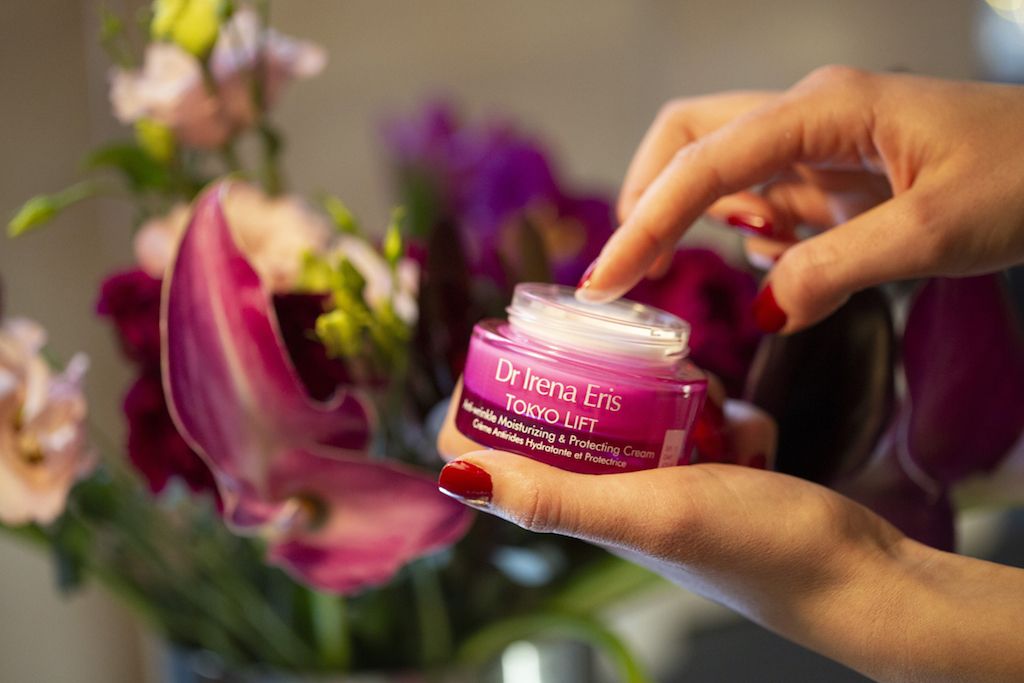
The idea of 'complete beauty' is part of the philosophy of this new brand on the Croatian market, which recently arrived at Douglas perfumeries. This company was the only Polish brand to be part of the European Comite Colbert group, which is an excellent complement to the label. Namely, it is an organization that links only the most prestigious global brands and cultural institutions marked by quality and luxury. The cosmetics are created with the synergy of innovative and luxurious cosmetics, and the result is a top line of face and body care products.
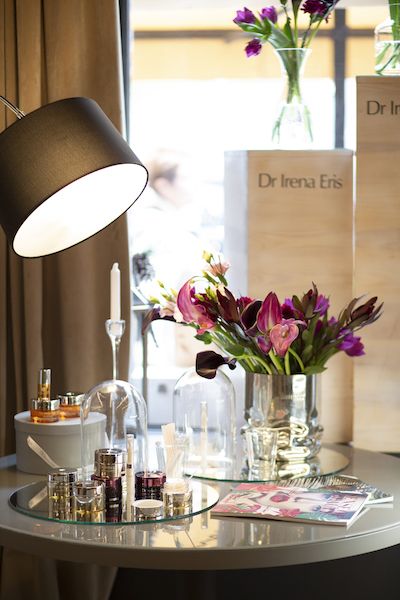
Behind the story is Doctor of Pharmacy Irena Eris who has discovered a miraculous combination of precious ingredients to help achieve healthy, beautiful and balanced skin.
“We want our cosmetics to make women more beautiful and keep them young and attractive,” said Irena Eris, who has been creating unique cosmetics and cosmetics solutions for many years on a global scale, and in the beauty industry, she particularly emphasizes holistic skin care.
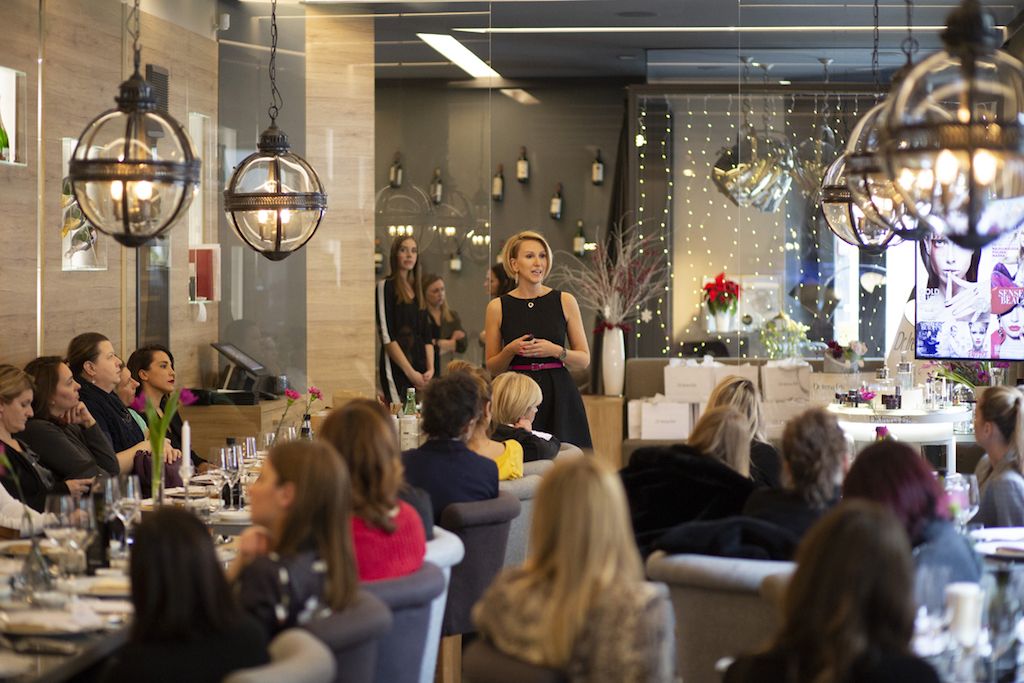
Her recipes are based on the application of her patents, innovative technologies, and top quality ingredients. The combination of cosmetological achievements and expert pharmaceutical knowledge brings a line of unusual cosmetic delicacies to resurrect women. The arrival of this cult brand on the Croatian market was applauded by many journalists and cosmetics connoisseurs, as well as socialites, who enjoyed a variety of delicacies from Noel and indulged in the party of beauty.
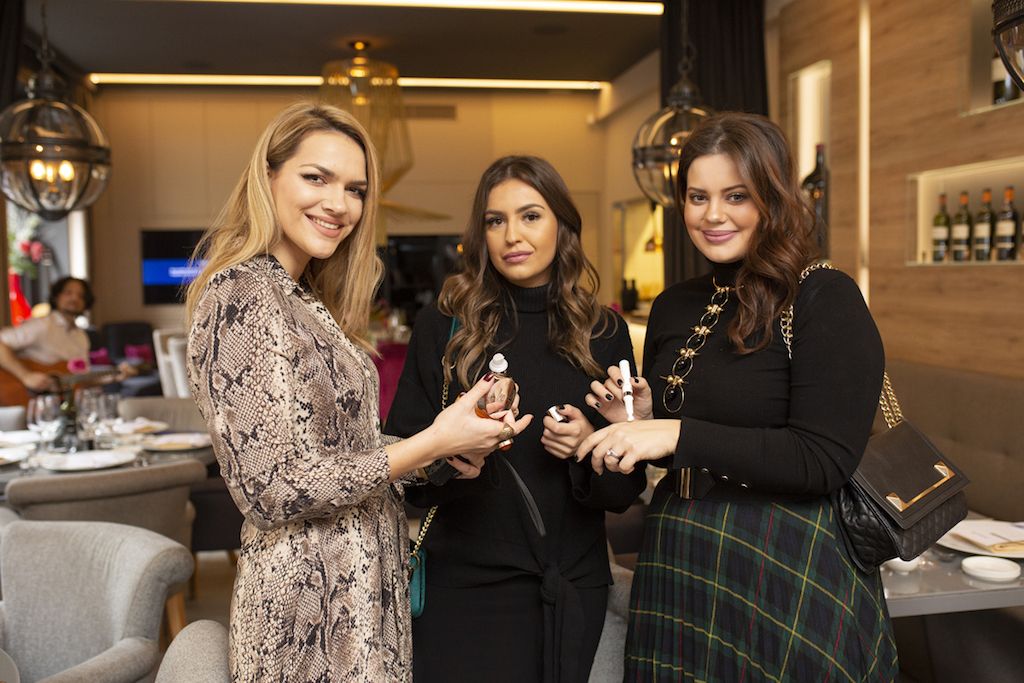
Among the first to choose their favorite products were Marijana Batinić, model Lucija Lugomer, and bloggers Maša Zibar and Donna Lugonja who could not hide their love of the brand. Dr Irena Eris’ face creams, eye creams, serums, and various facial and body care treatments can be found in selected Douglas perfumeries.
To read more about the events in Zagreb, follow TCN's dedicated page.
High Costs, Seasonality in Croatia Hinder Wizz Air from Expanding Operations
On December 10, 2018, Ex Yu Aviation spoke with Wizz Air CEO Jozsef Varadi about why the Hungarian low-cost airline has such a limited presence in Croatia.
Citing seasonality and high costs, Varadi said: “Unfortunately, if you look at the Croatian coastline it is a very seasonal business. It is intact for a few months and then sort of dies out for the rest of the year. Zagreb Airport is quite in a similar situation as Belgrade Airport in terms of costs, so I think it is a high-priced airport environment with fluctuating demand. Should the costs come down, I think they would attract us".
Varadi added, however, that overpriced airports are a problem throughout the region.
"For whatever reason, it is still kind of an inherited issue in the region to price airports very high and this is not the recipe for success. The recipe for success is taking down airport costs. As a result, you are attracting a lot more capacity into the airport and that capacity will stimulate the marketplace and you will recoup that investment through volume. I think there is still a lot of legacy thinking with regards to airport management and airport costs. If you look even at some of the privatized airports, not in the former Yugoslavia, but for example in Tirana, it is a privatized airport but we have the same issue in Tirana. To some extent, Skopje is a privatized airport and the development of Skopje is not aided because of the airport, it is more aided by the government's intervention. I think those strategies have to be thought through. But clearly, you have millions of examples in mainland Europe what recipes to follow if you really want drive your aviation and airline industry and, I think, in the former Yugoslavia it revolves around airport costs and the airport operating environment," Varadi added.
Wizz Air does fly limited services to Split from London, Warsaw, and Katowice, and over the years, they have even operated some other services to Dubrovnik and Zagreb. Recall, Wizz Air first began operations in Croatia in 2009 with a service between Zagreb and Dortmund, though it did not last - and the service between London and Dubrovnik was terminated in 2012.
This winter, only Eurowings will continue operations to the capital, as the airport’s chargers are much higher than many major airports in Europe. Recall, Zagreb Airport upped their fees after the new passenger terminal was built in 2017. What used to be 2 euro for each international passenger is now 17 euro.
You can read the full story on Ex Yu Aviation.
To learn more about Croatian airports, follow TCN's dedicated page.
Zagreb Winter FairYtale Held for First Time at Technical Museum
December 10, 2018 - From December 5 to 8, the Technical Museum in Zagreb hosted the first ‘Winter FairYtale’, a luxurious exhibition in a festive setting that prided itself on value. The organizers imagined the exhibition as the perfect stage to enjoy a lifestyle style characterized by hedonism: golf, high fashion, fine dining - a kind of luxury yacht in the middle of a city where you could see beauty and enjoy valuable things, hold inspirational meetings and meet dear people, and most of all, enjoy the best gastronomy and a specially designed music program.
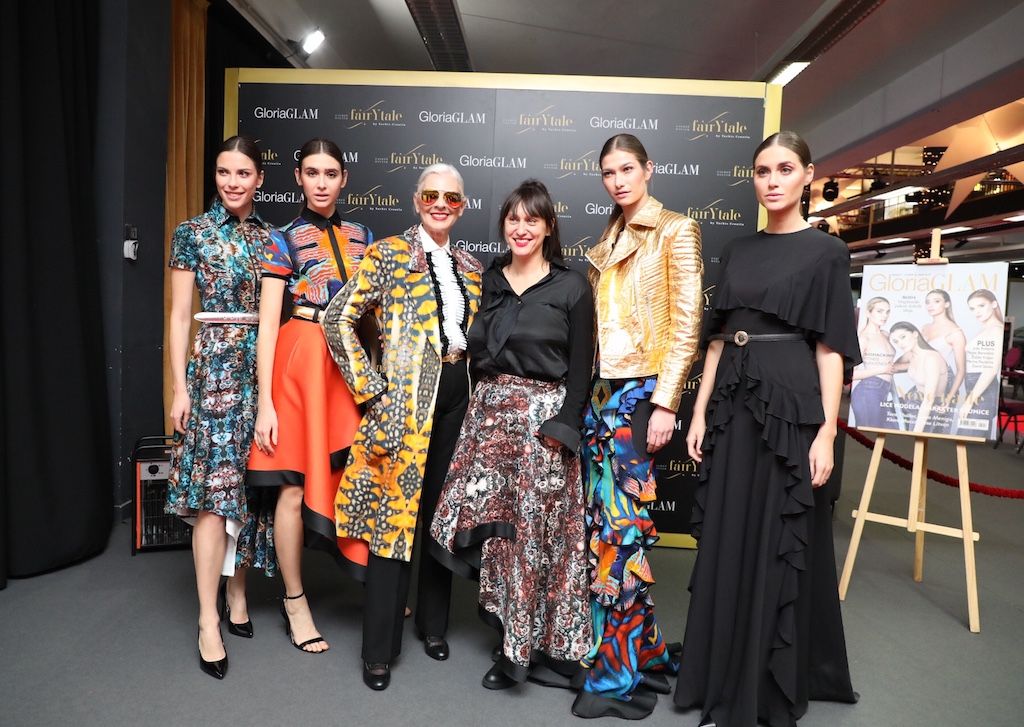
The most prestigious brands in the world were represented through several thematic parts: cars, yachting, real estate, watches and jewelry, fashion, technology, cosmetics, design, tourism and art. Around 30 exhibitors and 50 brands were featured at the event, which combined quality and style. Among them was the first manufactured of only 55 Rolls Royce models, the Italian Holy Trinity: Ferrari, Lamborghini and Maserati, attractive models of Audi and Mercedes, and among the first in Croatia, visitors could also see the new Porsche model. Along with Frauscher's sleek speedboat, also known from the James Bond movie, the Mennyacht and the prestigious Ferretti Group were also featured. Sea lovers and nautical enthusiasts enjoyed the Princess, Sunseeker, Azimut, Hallberg Rassy, and Martinis Marchi.
The guests in attendance learned about the new premium ACI marina in Rovinj. For the new trends in travel, hotels, real estate, home furnishings, cosmetics, Avcon Jet, Hotel Alhambra, Touch Adriatic, Terra Nostra, Era design, Armstark, Haby, Stories, and Premium Bliss stole the show… and diamond jewelry and the prestigious timepieces of Rolex, Omega, Hublot and Breitling even made an appearance.
The complementary part of the fair was also the events for visitors - fashion shows, the Advent gastronomic offer, gala dinners of famous chefs, music performances, and special FairYtale cocktails - all in cooperation with leading experts in their areas.
The FairYtale exhibition even had a humanitarian character and aimed to raise funds for socially vulnerable children with developmental difficulties.
With its original offer, ambiance and additional amenities, the Zagreb Winter FairYtale was extensively incorporated into Advent, which was named the best Christmas destination in Europe in the last three years. The inauguration day of this new Advent story was celebrated by the eminent team of Krešimir Mudronja from the restaurant on the island of Žut who presented Kornati tradition coupled with techniques and methods of high gastronomy.
On the first day, FairYtale delighted guests who had the chance to see the limited edition holiday collection by fashion brand Duchess, who was known as the partner of the renowned boat manufacturer Frauscher, while the boys of the SciFidelity Orchestra created an unforgettable atmosphere with an unplugged Christmas performance. However, the highlight of the first day was the culinary rhapsody of the famous Croatian chef Dina Galvagna. Chef Saša Pribičević from the Matsunoki restaurant (Hotel Bellevue, Mali Losinj) continued on the second day with a humanitarian dinner.
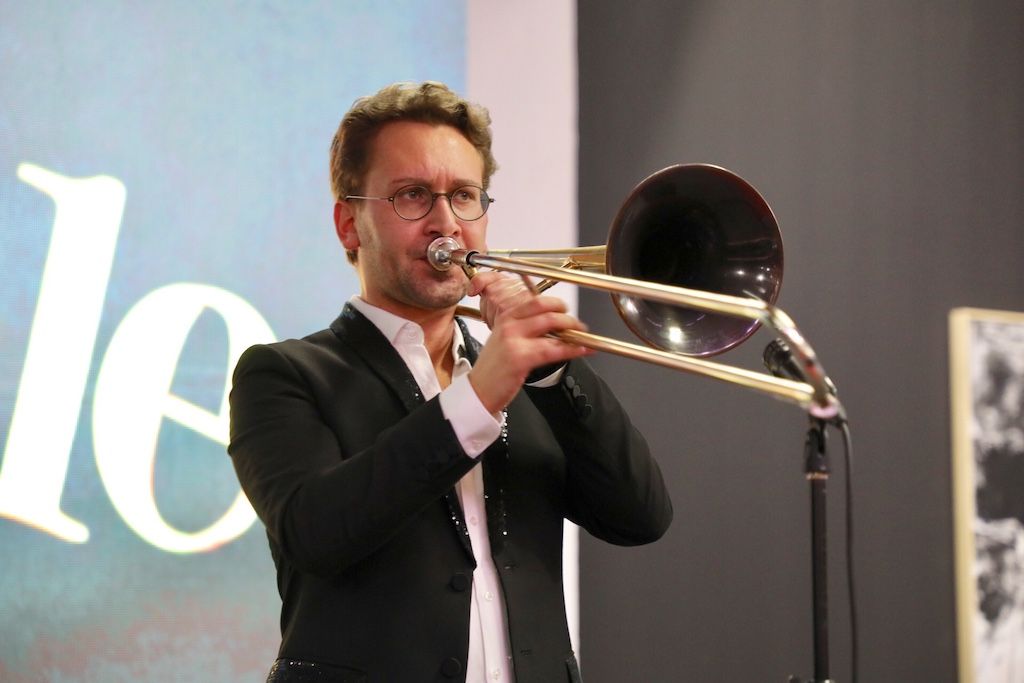
On the second day, the fusion of traditional Japanese cuisine and original Japanese food and Mediterranean/local foods with modern culinary techniques, combined with selected wines, was the event for top cooking enthusiasts. The Slovenian jazz trombonist and producer Žiga Murko led the musical part of the program, while the highlight of the evening was the fashion show by Slovenian fashion designer Matea Benedetti, who made her debut to the Croatian audience. Known throughout the world, she describes her models in three words: sustainability, innovation and luxury. The designer combines ecological spirit and a revolutionary manufacturing process, focusing on rare, precious and innovative materials. Her new collection is inspired by tropical fish, made from eco silk and discarded plastic bottles. Designs were also shown by Zagreb’s Boris Pavlin, while the men's fashion was led by Boutique with Brands Karl Lagerfeld, Carl Gross Black Line and CG Club. Boris Pavlin brilliantly connected lace and uniqueness in each piece. Extremely romantic and delicate, feminine and gentle, made with the techniques of classic couture, his creations open the window to another, dreamy time, deprived of today's mass production and cloned looks. Every garment is a fair little piece of art that is created after weeks of meticulous manual work.
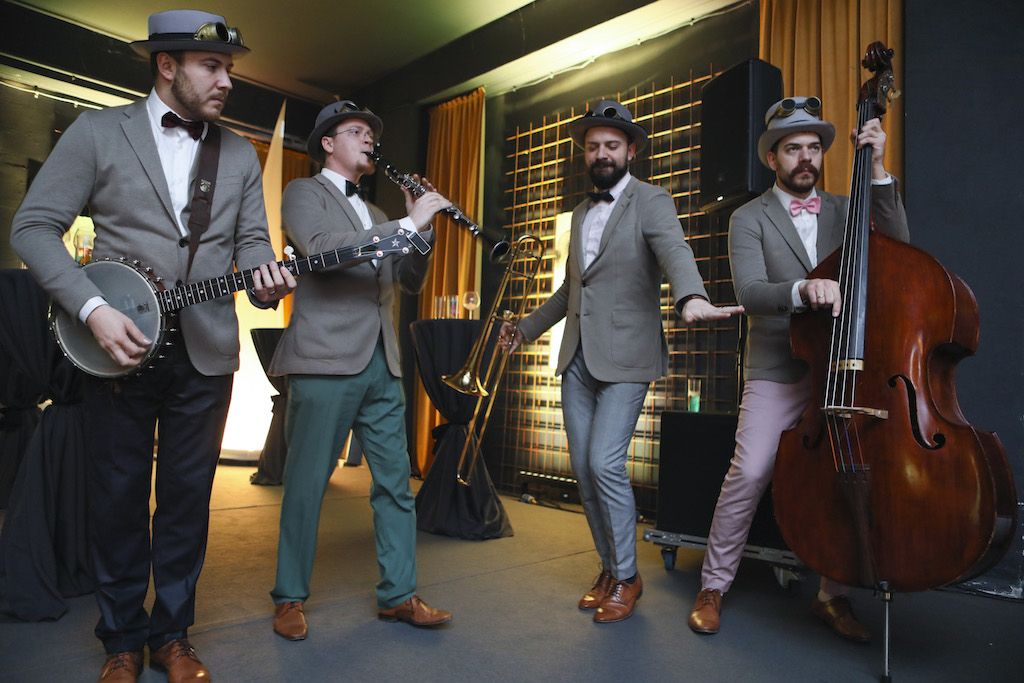
Friday, December 7, saw the screening of Pink Wing 2018, a Super Funk Session concert, and for the humanitarian gala dinner, the Slovenian chef Ana Roš was at the helm, which needed no further explanation for true gourmet lovers. Ana was declared the world's best female chef in 2017 and was chosen by her colleagues and professional chefs from all over the world. The Hala V Technical Museum became the world's gastronomic temple for a couple of hours, where guests enjoyed the avant-garde approach to home-made seasonal ingredients from the Soča Valley.
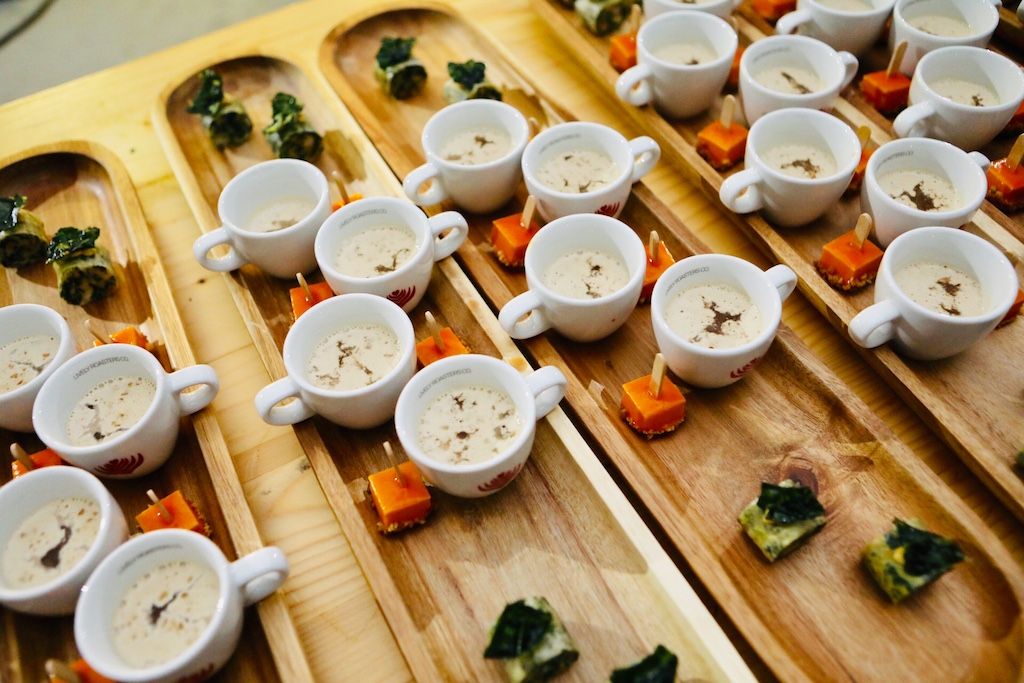
The food by Ana Roš was a particularly emotional experience for all guests, and the chef came to the guests at the end of the evening and held an inspirational talk about Kobarid, where she hails from, to her glittering team of gourmet wizards from all over the world, and a book called Sun and Rain that should be released next year on the prestigious Phaidon. Ana Roš wrote the book between serving at her family restaurant Hiša Franko, holding 515 interviews, and the 150 trips and visits she had in the past year, which also included Istria.
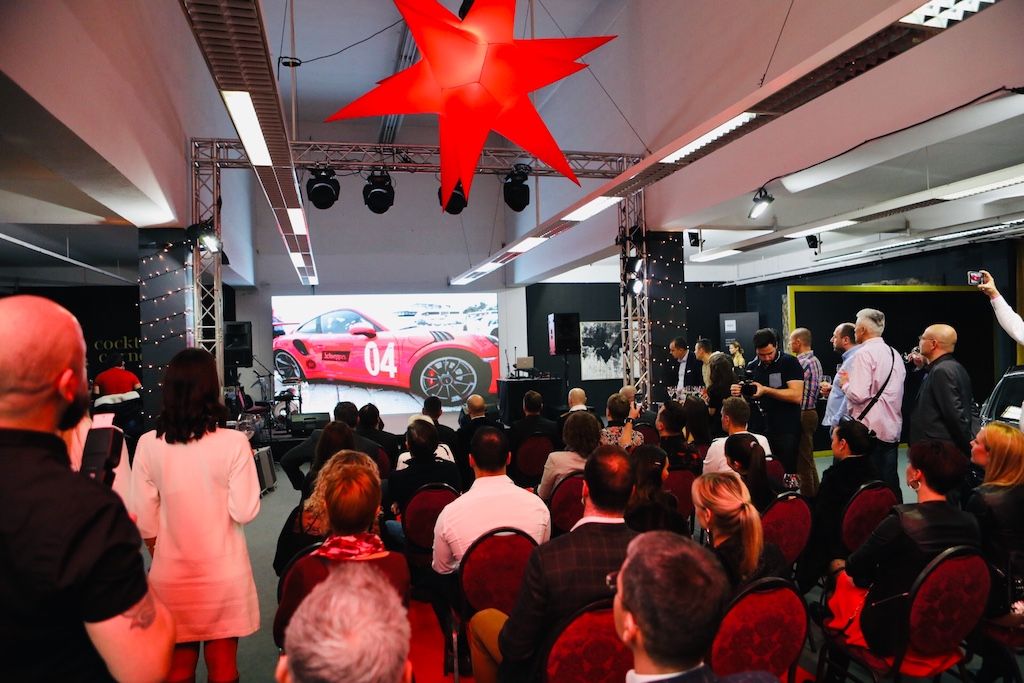
“I like these pop-ups. Small, sweet guests. As Zagreb is somewhat close, I could literally transfer part of Hiša Franko to the fair. I hope people enjoyed it,” said Ana Roš.
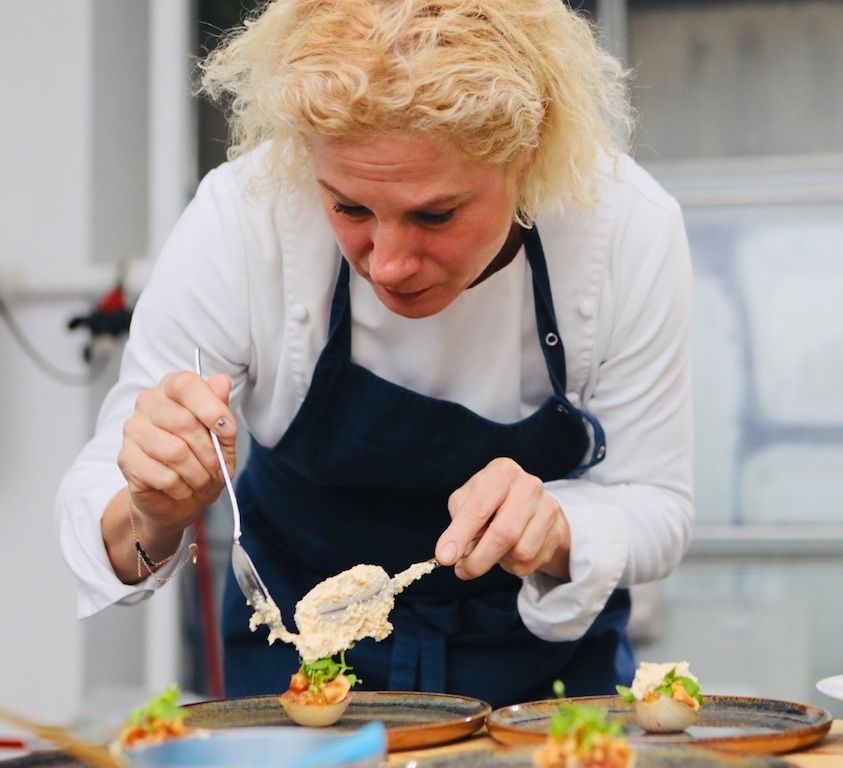
Darko Šupuk, president of the organizing committee, said: “The Zagreb Winter FairYtale is an ambitious and imaginative project focusing on the beauty and value of life, reflected in premium products and lifestyle, and compatible with luxury. Today, luxury is quality time spent, which is served by products from different spheres of life. I'm proud to do something like this in Zagreb and Croatia!
One thing is certain; the Zagreb Winter FairYtale gives Zagreb a completely new category for a European capital.
To read more about Zagreb, follow TCN's dedicated page.
Deputies to Perform Mayoral Duties While Zagreb Mayor Bandić Recovers
ZAGREB, December 9, 2018 - Zagreb Mayor Milan Bandić, who was admitted to hospital in the night between Friday and Saturday for pulmonary embolism, will be temporarily replaced in office by his two deputies – Jelena Pavičić Vukičević and Olivera Majić – in line with the statute of the City of Zagreb and the relevant legislation, the press office of the Zagreb mayor stated on Sunday afternoon.
Bandić is currently in a stable condition and is being treated in the Jordanovac Lung Disease Clinic at the University Hospital Centre Zagreb. The mayor is in the intensive care unit, and, according to statements from the hospital, he is likely to be discharged from Jordanovac after a seven-day hospital treatment.
In the coming week, the Zagreb city assembly is expected to discuss and adopt a budget for the capital city in the year 2019.
More news about the Zagreb mayor can be found in our Politics section.

